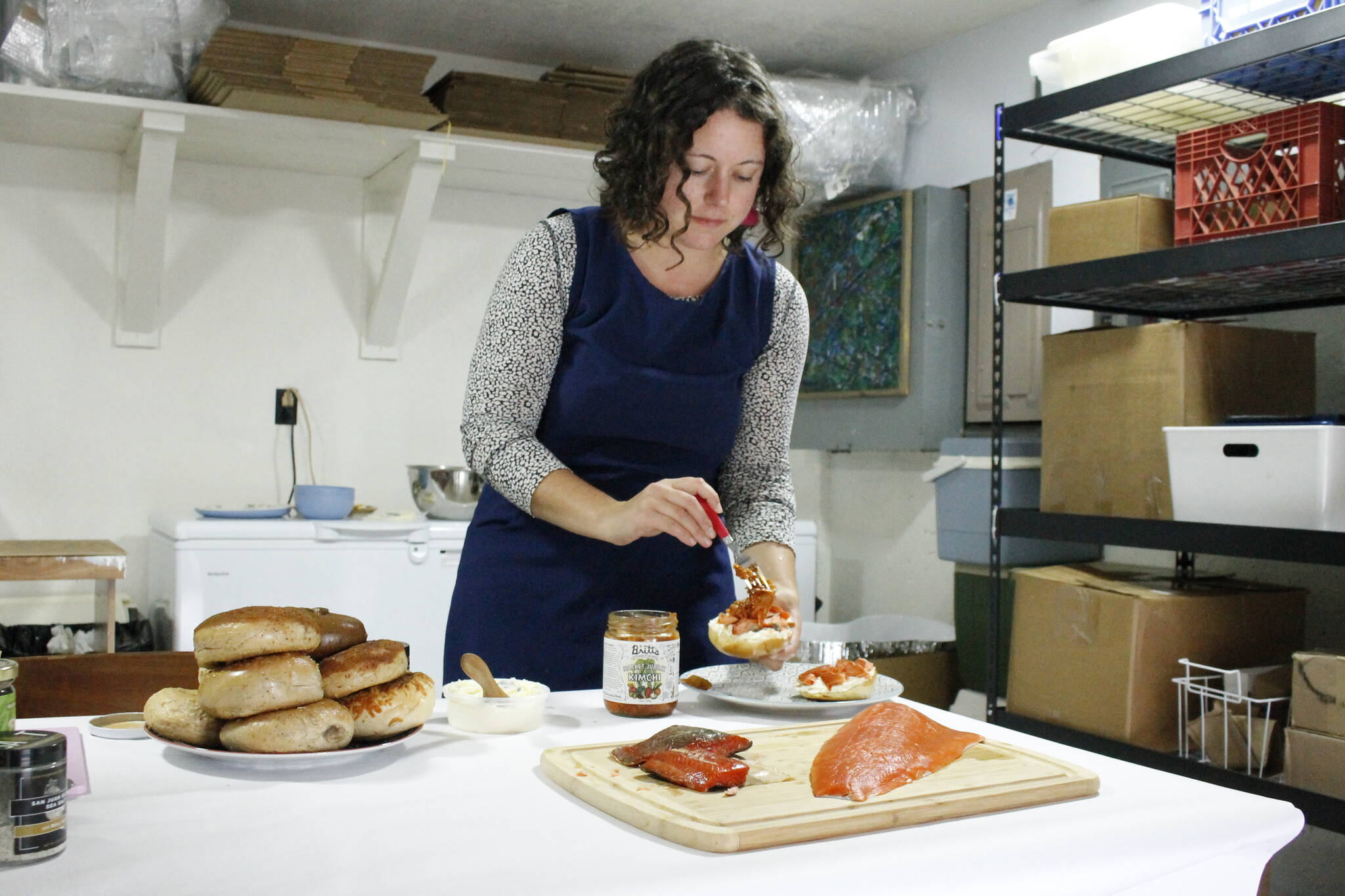For millennial business owners Emily Wilder and Sam Mitchell, the world is their oyster.
The childhood friends recently launched their own island-wide home delivery snacks and meal service, with a focus on small-batch, high-quality foods that are produced sustainably in the Pacific Northwest. The company is known as Salinity Seafood & More.
Growing up on South Whidbey, Wilder said she was surprised that there wasn’t a local food system in place for seafood, despite being surrounded by the Salish Sea.
“We’ve talked a lot about how strange it was to not really have access on the island to fresh seafood,” she said.
She and Mitchell recently reconnected over social media just a year ago, about a decade since their high school days. Despite moving away from Whidbey for college, they found themselves drawn back to the island as adults.
The duo decided to combine their shared experiences in the seafood industry to create something new. Wilder worked for major mollusk corporations, Island Creek Oysters and Taylor Shellfish Farms. Mitchell operates his own commercial fishing business in Alaska, Sam’s Salmon Sales.
Wilder had been working on an idea for meal kits when Mitchell contacted her. The pair decided to expand beyond just seafood to also include cheese, meat, bagels, condiments, dog treats and more in their “online grocery store.”
Salinity Seafood & More partners with Pacific Northwest vendors — including Mitchell’s salmon business — to bring the food to the customer’s doorstep. Currently, Wilder and Mitchell are hand-delivering every order placed by Whidbey residents, from the North End to the South End.
A goal of the business is making the oyster — which is traditionally viewed as a pricey, upper-crust delicacy — more accessible to everyone.
“It’s not fancy food,” Wilder said. “The history of the oyster is it was every person’s food. They were so widely available.”
“It just wasn’t really in our ethos to be this company that sells food that you can only afford if you make $200,000 a year,” Mitchell said. “We want to provide this food to everybody.”
Their company also strives to be environmentally conscious. The pair plans to pack food boxes with reusable materials and as little plastic as possible. Mesh oyster bags, for example, can be sanitized and used several times.
“People are so used to just getting five Amazon boxes a day with all that packaging,” Wilder said. “We really just want to ask that question, ‘Do we need all of this and how can we reduce it?’”
They are currently experimenting with a reusable shipping cooler that can potentially keep items cool for up to several days.
“These freezing methods create product that most people wouldn’t be able to tell if it got frozen before,” Mitchell said.
Alternatively, Whidbey residents can choose to leave their own coolers on their front porches for Wilder and Mitchell to put their orders in.
“The whole thing with having an e-commerce website, we’re creating waste and we’re creating this carbon footprint and so a big part of the puzzle of this is, how do we reduce that and how do we offset that as much as possible?” Wilder said.
The business is also designed to give back to others. Wilder and Mitchell are both passionate about combating climate change and have created a fund titled “Turn the Tide” that gives a portion of proceeds to nonprofit organizations and schools that are also in line with this mission. For every item sold, $1 is split among 20 different nonprofit organizations, including Whidbey Island Nourishes, Island Senior Resources and the Whidbey Homeless Coalition.
If they’re feeling generous, shoppers can contribute to a “Pay It Forward” program that allows “peer-to-peer subsidy” for people who need help paying for their groceries.
Eventually, the website for the business will have more videos and tutorials. Wilder said they are in the process of building a recipe database. They have also partnered with a tasting profile app, Sample Ox, which will help people compare notes about their favorite flavors of oysters.
But above all, the young owners of Salinity Seafood & More are hoping to educate people with the food they’ve chosen to promote.
“Ideally when they’re eating the food, they’ve also learned something about Puget Sound, water quality and climate change impacts on the food that they’re eating,” Wilder said.
For more information, visit salinityseafood.com.



